Physical Therapist Assistant
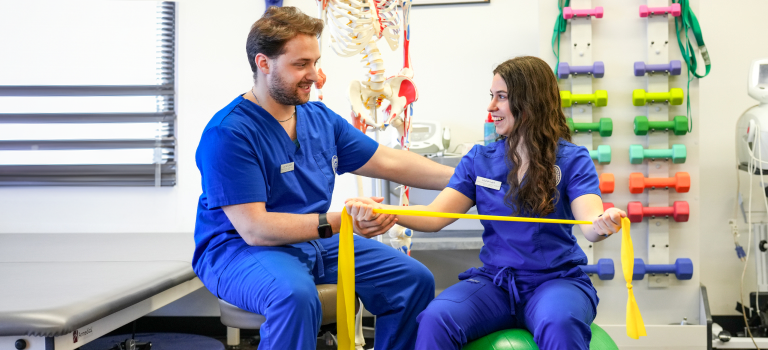
Program Overview
The Physical Therapist Assistant (PTA) Program prepares students for licensure and employment as Physical Therapist Assistants. Graduates will possess exemplary technical competence, be critical thinkers and practice ethically in various healthcare settings. The program is dedicated to the industry of Physical Therapy, lifelong learning and values a commitment to the community.
The Physical Therapist Assistant faculty is committed to graduating confident, knowledgeable clinicians who work under the direction and supervision of a physical therapist. Guided by the practice that physical therapy necessitates specific complex cognitive, psychomotor, and affective behaviors, the curriculum is designed to meet the standards of the Commission on Accreditation in Physical Therapy Education (CAPTE) and the professional standards of the American Physical Therapy Association (APTA).
Program Details: Spring Start
January 2025: Hybrid Class in Quincy (Online & In-Person, Evening)
Full-time 2-year program (includes clinical experience between year 1 and year 2). Additional core courses might fall outside of the scheduled times for PTA courses. Clinical schedule hours vary depending on site.
Program Cost:
Current cost per semester of PTA (Tuition only) based on the 2023-2024 academic year fee schedule.
Year 1, Semester 1: 16 credits = $12,572
Year 1, Semester 2: 16 credits = $12,572
Year 1, Summer/Winter: 12 credits (including Clinical Education I) = $5,388
Year 2, Semester 4: 16 credits = $11,090
Year 2, Semester 5: 11 credits (including Clinical Education II and III) = $8395
Total cost (not including textbooks, fees, & materials) = $50,017
PTA Program Outcome Data
| 2-year average | 2022 | 2023 | ||
| Graduation Rate | 80% | 60% | 100% | |
|
94.5% | 100% | 88.9% | |
|
100% | 100% | 100% |
| Employment Rate | 100% | 100% | 100% |
* This percentage reflects students who have passed the licensing exam and reported employment within 6 months of graduation.
Accreditation Status
The PTA Program at Quincy College is accredited by the Commission on Accreditation in Physical Therapy Education (CAPTE), 3030 Potomac Ave. Suite 100, Alexandria, Virginia 22305; telephone: 703-706-3245. Email: accreditation@apta.org; website: http://www.capteonline.org.
If needing to contact the program/institution directly, please call Christie Amorosino at (617) 405-5969 or email camorosino@quincycollege.edu.
Student Financial Fact Sheet
The Commission on Accreditation in Physical Therapy Education voted to require all Doctor of Physical Therapy Programs and Physical Therapist Assistant Programs to “provide the public with current, accurate, reliable, and easily available information about the cost of attendance” (CAPTE Rules of Practice and Procedures 8.20(c) Student Costs).
2024-Quincy College PTA Financial Fact Sheet
Have questions or want to apply for the program? Contact:
Christie Amorosino, PT, DPT, Program Director
camorosino@quincycollege.edu | (617) 405-5969
David Huynh, Admissions Associate
david.huynh@quincycollege.edu | (617) 984-1713
PTA Complaint Policy
Physical Therapist Assistant Courses
-
Code
Course
Credits
-
- PTA 100
Introduction to the Physical Therapist Assistant
- 3
-
- PTA 110
PTA Interventions I
- 4
-
- PTA 112
PTA Interventions II
- 5
-
- PTA 113
Critical Application Skills I
- 1
-
- PTA 115
Medical Terminology for the PTA
- 1
-
- PTA 120
Musculoskeletal Anatomy and Function
- 4
-
- PTA 125
Manual Therapy for the PTA
- 2
-
- PTA 210
PTA Interventions III
- 4
-
- PTA 213
Critical Application Skills II
- 1
-
- PTA 220
PTA Interventions IV
- 5
-
- PTA 224
Career Capstone
- 1
-
- PTA 240
Pathology for the PTA
- 3
-
- PTA 260
Critical Application Skills III
- 1
-
- PTA 270
Clinical Education I
- 3
-
- PTA 280
Clinical Education II
- 3
the next affiliation. Prerequisites: PTA 100, PTA 110, PTA 112, PTA 113, PTA 115, PTA 120, PTA 125, PTA 210, PTA 213, PTA 220, PTA 240, PTA 260, PTA 270. -
- PTA 290
Clinical Education III
- 4
-
- BIO 131
Anatomy & Physiology I w/ Lab
- 4
-
- BIO 132
Anatomy & Physiology II w/ Lab
- 4
-
- CSI 101
Introduction to Computers
- 3
-
- ENG 101
English Composition I
- 3
-
- ENG 102
English Composition II
- 3
-
- HIS 101
United States History I
- 3
-
- MAT 107
Statistics
- 3
-
- PSY 216
Growth & Development
- 3
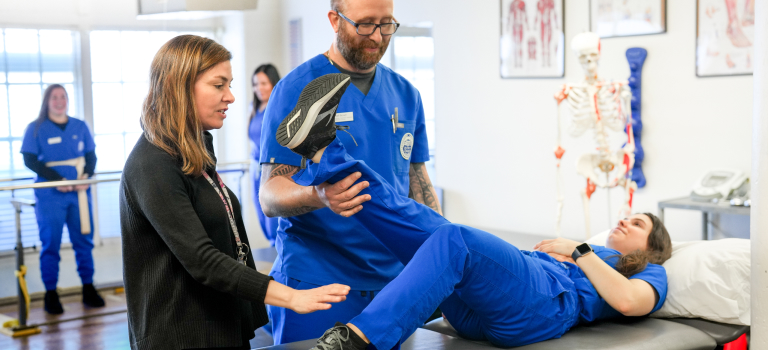
Program Goals
1. Graduates will receive an Associate of Science degree designed to lead to licensure/credentials to practice as an entry-level physical therapist assistant under the direction and supervision of a Physical Therapist.
2. Graduates will be competent in all the skills necessary to perform as a Physical Therapist Assistant under the direction and supervision of a Physical Therapist in a variety of settings.
3. Graduates will be well rounded in their education including basic, clinical, and social science coursework to enhance their ability to think critically as a member of the healthcare team.
4. The program will promote the importance of continuing personal and professional development through service to the community, life-long learning opportunities, and membership in professional organizations
About the Program
Aligned with Quincy College’s mission to encourage academic achievement and excellence, the physical therapist assistant (PTA) program faculty and clinical educators value student learning and achievement both in and out of the classroom. Efforts are made toward a holistic, respectful learning environment. This collaborated effort includes a variety of learning resources and recognizes and understands differences in learning styles. An innovated approach will motivate the learner by utilizing contemporary education practices, technology, and competency based laboratory practice.
The Physical Therapist Assistant program is a five semester program offered in-person on the Plymouth campus with a fall start and also offered in a hybrid format (in-person and online) on the Quincy Campus with a spring start. The curriculum consists of foundational content, physical therapy technical courses, and a clinical education component. The program values and promotes excellence in education and includes evidence-based knowledge and clinical skills essential to the physical therapist assistant. The physical therapist assistant curriculum includes the necessary information to allow the student to gain the didactic knowledge, motor skills, and professional behaviors required to meet entry-level expectations of the physical therapist assistant working under the direction and supervision of a physical therapist. The clinical education component is designed to integrate knowledge and professional behavior with patient care. Under the direction and supervision of the clinical instructors, students learn patient care skills as well as the value of lifelong learning.
Physical therapy practice encompasses health promotion, prevention, and rehabilitation for individuals from diverse populations across the lifespan. The Quincy College Physical Therapist Assistant program is committed to this philosophy and will strive to embed the importance of promoting wellness and contemporary practice into a holistic environment. The program is an integral part of the Quincy College community and is consistent with the stated mission of the College.
Have questions or want to apply for the program? Contact:
Christie Amorosino, PT, DPT, Program Director
camorosino@quincycollege.edu
(617) 405-5969
David Huynh, Admissions Associate
david.huynh@quincycollege.edu
(617) 984-1713
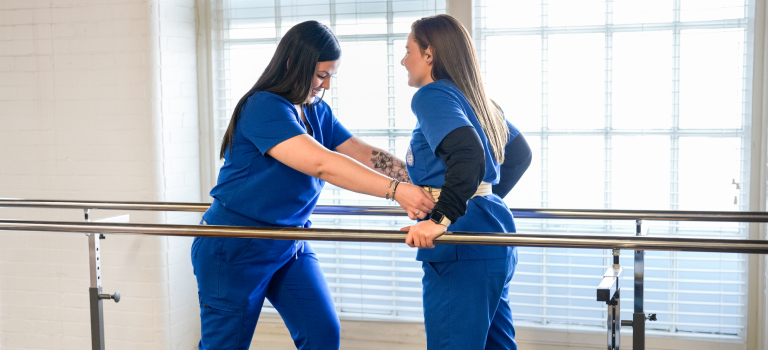
Admissions Pre-requirements
- Official high school transcript or HiSET/GED records or original diploma (if completed outside the United States, high school transcripts/diplomas must be evaluated by CED (Center for Educational Documentation).
- ATI TEAS must be completed- Contact Admissions for more information. Minimum overall score for PTA Applicants is 55% (visit atitesting.com to register)
- BIO 111: General Biology (4 credits) with a grade of C or higher OR BIO 131: Anatomy & Physiology I with a grade of C or higher (for applicants graduating from high school, a high school Biology course with a grade of B or higher)
- ENG 090: Basic Composition or placement into ENG 101 on the Accuplacer
- MAT 097 or placement into MAT 107 on the Accuplacer
- Applicants are required to have 20 hours of observation in the Physical Therapy field.
- All applicants prior to the application deadline will be required to attend a mandatory PTA Info Session with PTA faculty as part of their application.
- Accepted students will be required to attend the PTA Program Orientation Meeting to reserve their seat in the class.
Application
- Applications are open. Click here to apply.
- Students applying to the PTA program will be required to attend an Information Session presented by the PTA faculty as part of the application process, either in person or virtual. Sign up for an information session here.
- Students admitted into the PTA program will be required to attend a mandatory PTA Orientation session on campus with PTA faculty in order to reserve their seat in the program. Please contact Christie Amorosino at camorosino@quincycollege.edu.
- Graduates of the PTA Program at Quincy College are eligible to take the National PTA Licensure Exam which is administered through the Federation of State Boards of Physical Therapy. For information on the NPTE- PTA Licensure Exam please refer to www.fsbpt.org. To find out detailed information about applying for licensure in a specific state, please refer to this page.
Acceptance Review Process
PTA Applicants will be scored utilizing a Point System, out of 100 points. Points are based upon: Overall GPA (20), Prerequisite Grades(20), ATI TEAS Examination Score (20), Accuracy and Completeness of Application (10), Previous College Degrees (20), and Certification or Licensure as a Healthcare Provider and/or Previous Healthcare Experience (10). Applicants are also required to have 20 hours of observation in the Physical Therapy field. Please contact the Program Chair or Advising for more information.
Have questions or want to apply for the program? Contact:
Christie Amorosino, PT, DPT, Program Director
camorosino@quincycollege.edu
(617) 405-5969
David Huynh, Admissions Associate
david.huynh@quincycollege.edu
(617) 984-1713
TEAS Exam
Test of Essential Academic Skills Exam (TEAS)
The TEAS Exam, or Test of Essential Academic Skills Exam, is a critical exam for students pursuing higher education, especially in healthcare. This exam is required for the PTA Program application. Click here to learn more about the TEAS Exam.
Important things to know before you register for a TEAS Exam
- Online testing scores will not be accepted. You can take your TEAS Exam at Quincy College. If you take your exam at Quincy College we will be able to access your score. ATI will charge a fee to transfer a score from another testing site.
- Testing usually occurs on Friday mornings at 9 am unless otherwise noted. There are several dates available for testing throughout the academic year. Find the next TEAS Exam at Quincy College.
- You should arrive 30 minutes before the test time to allow for check-in. If you arrive after the start time, you will not be allowed to test.
- Be sure to bring your login and password received from ATI. You must have it to test.
- You must have a picture ID with you on the day you test.
- You will have 3 ½ hours to take the exam.
- The test will be taken on the computer.
- The Physical Therapist Assistant Program requires a minimum score of 55%.
- TEAS results are available immediately upon completion of the exam.
- If you want to transfer the results to another school, ATI will charge a fee.
- Second-Attempt Policy: There is a 30-day wait period before you can test again.
- The total number of TEAS exam attempts is 3 in one year. Each time you take the TEAS exam, it counts as an attempt even if you decide not to submit your transcript. This number is reported and updated to each school where you submit your TEAS results.
- The cost of the TEAS exam is approximately $115. This fee is non-refundable.
- No electronics or drinks are allowed in the testing area (this includes smartwatches).
- A pop-up calculator is available for use on the computer, and paper and pencils will be provided.
- If you need a testing accommodation, contact lpeckham@quincycollege.edu 48 hours before you plan to test.
Note: There are study materials available for purchase on the ATI website, and Quincy College offers 5-week prep courses throughout the year. https://www.quincycollege.edu/program/teas/
Registration Information
- Go to the ATI website: https://www.atitesting.com/teas/register
- Click Register Now
- Select In-Person testing
- Program Type: Select TEAS for Nursing or Allied Health
- Location: School Name
- State: MA
- School: Quincy College
- Select a Date and continue the registration process
Have questions or want to apply for the program? Contact:
Christie Amorosino, PT, DPT, Program Director
camorosino@quincycollege.edu
(617) 405-5969
David Huynh, Admissions Associate
david.huynh@quincycollege.edu
(617) 984-1713
Physical Therapist Assistant Program Essential Functions for Students:
There are several important factors for you to consider when determining your future career direction. To be successful in the PTA classroom and your job following graduation, you should be able to meet all the following expectations:
- Attend class approximately 10-25 hours a week or perform 40 hours a week of clinical education, depending on the stage of the program curriculum.
- Complete all assignments on time.
- Participate in classroom discussions.
- Perform or instruct others in the following procedures (learned in class) in a timely manner: transfers, gait training, physical agents, activities of daily living, therapeutic exercises or activities, and data collection procedures.
- Use sound judgment and safety precautions (exposure to blood-borne pathogens and/or infectious diseases may occur as part of the educational experience). Students are trained in safety/infection control and are expected to follow these guidelines to avoid contracting or transmitting disease.
- Meet class standards for successful course completion.
- Use critical thinking when making decisions.
- Follow standards stated in the PTA Program Handbook and the PTA Program Clinical Education Handbook.
- Address problems or questions to the appropriate person at the appropriate time.
- Maintain classroom, work area, equipment, supplies, personal appearance and hygiene conducive to a professional setting as appropriate.
- Behave in a competent, professional manner.
Physical requirements for the PTA Program include the need to occasionally, frequently, or continually:
- Sit 2-5 hours per day with lecture blocks up to 3 hours.
- Stand 1-6 hours with lab time blocks up to 3 hours.
- Lift up to 60 pounds.
- Push/pull up to 50 pounds of force exerted at waist level.
- Squat or stoop.
- Use auditory, tactile, and visual senses to assess the physiological status of an individual.
- Demonstrate good standing and unsupported sitting balance.
- Demonstrate good finger dexterity.
- Coordinate verbal and manual instructions.
- Communicate effectively with a variety of people through written, verbal, and nonverbal methods.
- Use hands repetitively.
- Shift weight in sitting or standing.
- Demonstrate the ability to use a firm grasp while using physical therapy equipment and while performing physical therapy interventions.
- Reach above shoulder level.
- Kneel, kneel-stand, and half kneel.
- Use equipment that emits electrical, ultrasonic, and thermal energy.
- Physically move and transfer patients.
Have questions or want to apply for the program? Contact:
Christie Amorosino, PT, DPT, Program Director
camorosino@quincycollege.edu
(617) 405-5969
David Huynh, Admissions Associate
david.huynh@quincycollege.edu
(617) 984-1713
The SynDaver
The SynDaver Anatomy Model, procured by Quincy College, is an education-grade synthetic human cadaver complete with all bones, joints, muscles, organs and tendons found in normal human anatomy. This model includes:
- Over 600 muscle composites and 200 bones
- Major nervous system and vascular components
- Complete and functional musculoskeletal, cardiovascular, respiratory, gastrointestinal, endocrine and nervous systems
The SynDaver Anatomy Model is an ideal alternative to human cadavers often used to demonstrate critical skills of healthcare professions in basic anatomy classes. The tissues are a better representation of live tissue than the dead tissue of a cadaver. Students will have a hands-on approach in exploring the above systems, which is much different from using traditional models.
The Lab
The SynDaver is housed on the Plymouth Campus. The lab space includes cutting-edge tools such as Anatomy and Physiology tools, microscopes, and models. It will include a dip tank as the Syndaver needs to remain submerged when not in use to avoid the desiccation of the model. The SynDaver is used as an interdisciplinary teaching tool to augment classroom lectures with applications for students studying Phlebotomy, and Physical Therapist Assistant.
Have questions or want to apply for the program? Contact:
Christie Amorosino, PT, DPT, Program Director
camorosino@quincycollege.edu
(617) 405-5969
David Huynh, Admissions Associate
david.huynh@quincycollege.edu
(617) 984-1713
Physical Therapist Assistant Program Frequently Asked Questions
Which campus is the program held on?
The PTA program is now offered on both the Plymouth and Quincy Campuses.
Are night classes available?
Yes, evening classes will be offered within the hybrid program on the Quincy Campus. The PTA Program on the Plymouth Campus will remain a full time, day program.
How many students are accepted into the program?
The PTA Program accepts 12-16 students per cohort.
When does the program start?
The PTA Program admits two cohorts per year, one in September and the other in January.
Can I take any courses before being accepted into the program?
All General Education courses (non-PTA designation) may be taken prior to acceptance into the program.
Will my general education courses transfer from another school?
You will need to meet with an Admissions Associate to determine if your courses will transfer.
Can I work while in this program?
The PTA Program is rigorous and demanding. The PTA Program Faculty suggest that you limit your time working while in the program in order to allot yourself enough time to be successful with the academic requirements of the program. There are three full time clinical education experiences in this program that require you to work 40 hours a week and schedules vary (travel time to and from sites may add to these hours). That being said, most of our students do maintain some part time work in our program.
Will my PTA courses count towards a PT degree?
No. PTA Programs are not typically designed to be a stepping stone for PT programs. If you are interested in pursuing a PT education, you should check the admissions requirements for those programs.
Is Financial Aid Available?
Financial aid is available for those who qualify.
For more information please contact the Financial Aid Office or visit: https://quincycollege.edu/tuition/financial-aid/
What is the Transfer Policy?
For consideration into the PTA program at Quincy College from another PT or PTA program, students must be in good academic standing in the external program and meet all new student admission requirements for the Quincy College program. All previous coursework must have been completed within the past year and will be evaluated on an individual basis in order to determine transferability.
Have additional questions or want to apply for the program? Contact:
Christie Amorosino, PT, DPT, Program Director
camorosino@quincycollege.edu
(617) 405-5969
David Huynh, Admissions Associate
david.huynh@quincycollege.edu
(617) 984-1713
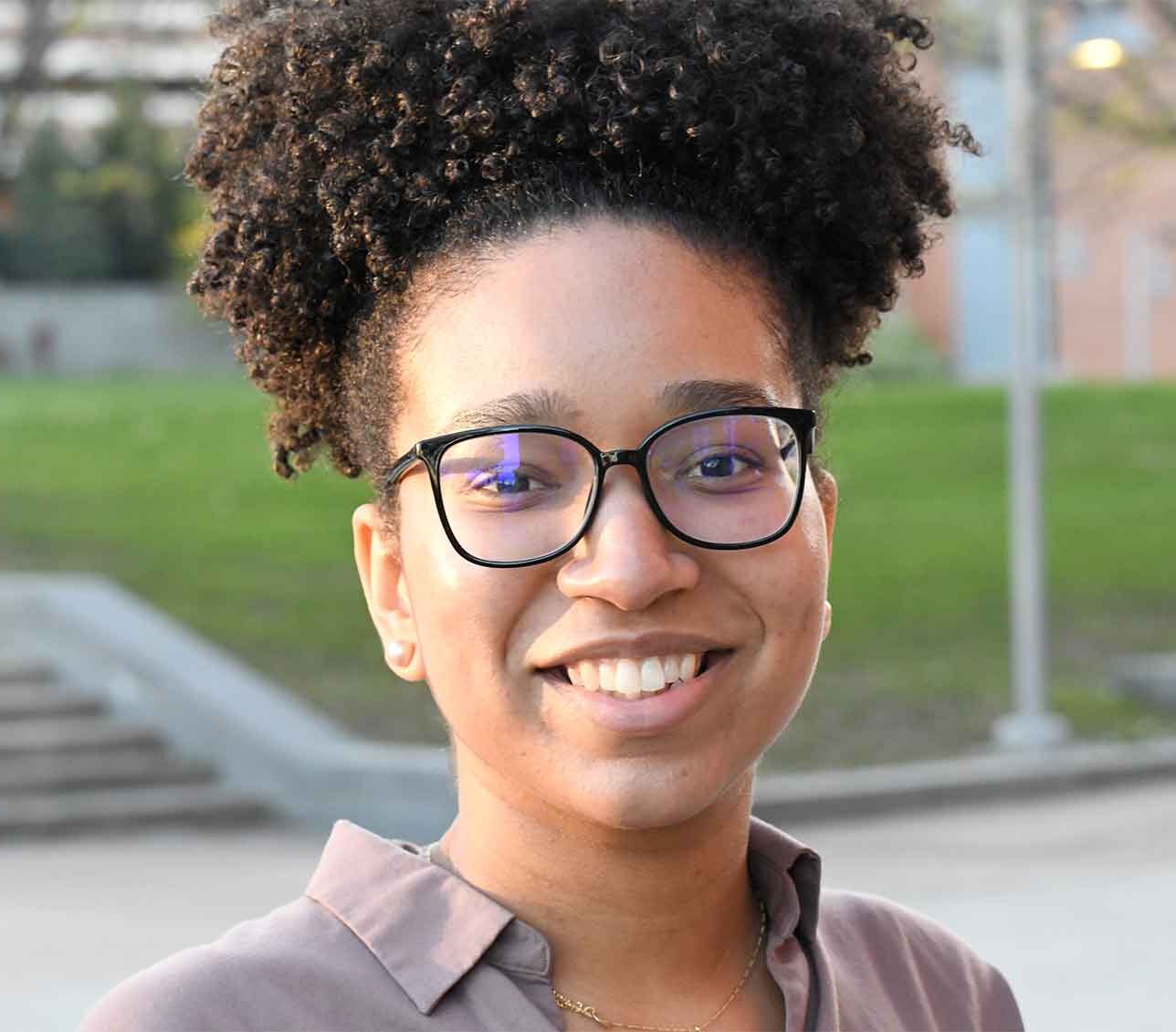
View Current Semester Courses>>
Start your education at Quincy College this fall. Our online and blended curriculum makes it easy for you to stay safe and earn your degree!
You might also be interested in...
-
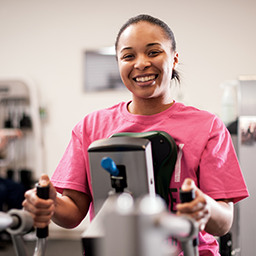
Exercise Science & Personal Training
The Exercise Science & Personal Training program provides relevant, research-based classroom instruction as well as practical exercise experience.
-
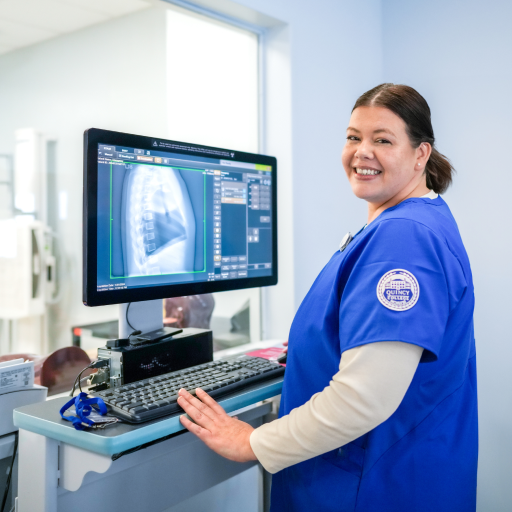
Radiologic Technology
The Radiologic Technology Program at Quincy College prepares students in diagnostic imaging procedures to be ready for entry level positions.
-
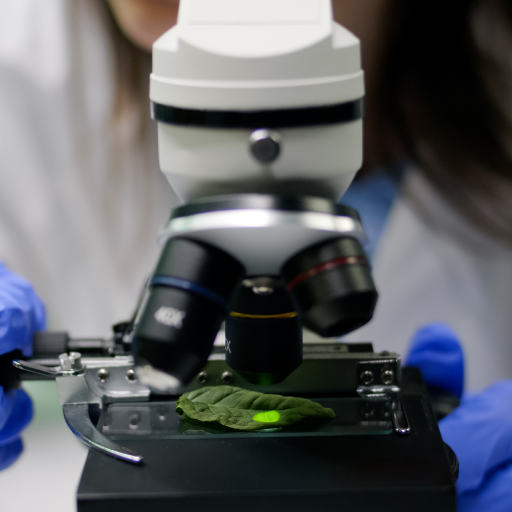
Natural Science
This program is for students who desire a broad study in the natural science disciplines including biology, chemistry, physics, and health sciences.
-
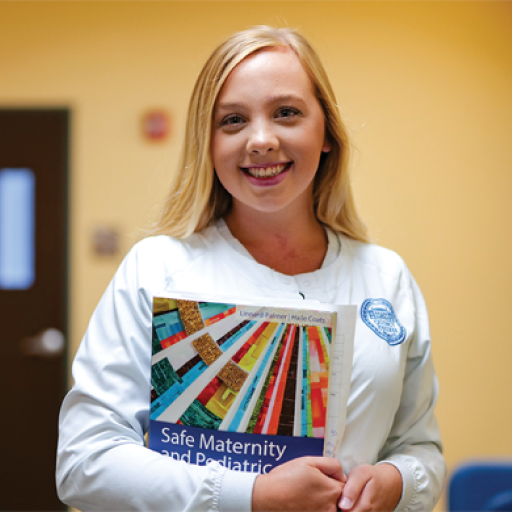
Courses
View the current course schedule. Quincy College offers the programs you want, the flexibility you need and the price that makes it all possible.


